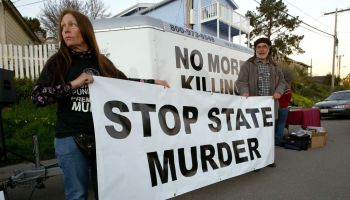From a very early age, Atlanta Attorney Travis T. Townsend Jr. (pictured) seemed preordained to be a lawyer.
“When I was a small child, I loved to debate,” he said. “No answer I was given was ever good enough. I was very inquisitive. I always challenged the norm and had to have things explained to me if it didn’t make sense to me.”
But selecting a type of law to practice for a living presented a tougher challenge.
RELATED: Entrepreneur Takes Hair Salon, Industry To New Heights
“I wasn’t sure just how to engage the profession,” said Townsend. “Work for the government or on my own. Go in to criminal law or civil rights or something else. There were lots of decisions that had to be made.”
Townsend said his lifelong desire to “help the small guy” initially lead him to the practice of criminal defense to help ensure people’s rights weren’t being abused.
The only problem was that he was far from alone in selecting that field.
“I saw a lot of young African-American lawyers were like minded. They wanted to make sure people’s rights weren’t denied. There was no shortage of those types of firms in Atlanta.”
So Townsend zigged where others zagged, selecting business law as his specialty. And now specializing in that niche segment of the legal world is bringing success to the Atlanta-based law firm of Townsend & Lockett LLC.
“After taking business law in law school, I learned that [there weren’t] a lot of minority law school students getting in to the study of corporate securities, mergers and acquisitions, and the like. I felt that would be a good place to fill a void in the profession and would provide good job security at the same time. I wanted to be unique in that area.”
With law partner Tennell Lockett who focuses on patent, trademark, and copyright matters, the firm of 10 lawyers has been working the ground that many other minority lawyers in the city pass by.
But selecting a lucrative branch of the law to practice didn’t guarantee success for Townsend.
After three years of advance research, a little hurdle known as the global recession forced the planned opening of the firm back a year to February 2010.
Then the launch brought its own set of challenges familiar to any entrepreneur.
“At the start, we had to figure out a schedule to allow us to work from home some of the time and share office space at the same time,” he said.
“Balancing the administration while developing the business and getting payment process set up, calculating what was coming in and what was going out. There are so many things to consider at the start.”
Then after two years of profitable operation, a founding partner of the firm left, forcing a complete change of direction, Townsend said.
“The third year was a reset year and it wasn’t easy,” he said. “We had to change the name, the brand and retool how we were selling ourselves to our market.”
Townsend said the first quarter of 2013 is about 120 percent ahead of 2012, with much of the credit going to signing a multi-year agreement with Coca-Cola.
Townsend expects business to continue upward with the firm’s membership in the National Association of Minority and Women Owned Law Firms, a move he said shows his firm is maturing.
“The association acts as a vetting organization that sets standards, but it is also where Fortune 500 companies go to find qualified law firms they might not normally do business with,” Townsend said.
A Michigan native, Townsend said Atlanta has proved to be a great place to launch a minority-owned law firm because it is home to so many minority entrepreneurs trying to establish themselves. But that concentration of business people all scrambling for the top can come at a price.
“There is a lot of talent in this city,” Townsend said. “But you also have people who have some contacts that draw your attention and flash like a peacock but don’t have much behind them.”
But overall, Townsend said he wouldn’t trade his experience of building a new business in Atlanta for anything.
“You can come here with no contacts or friends and plant your flag,” he said. “If you want to build something and put in the effort, people will know who you are if you show your worth.”
















